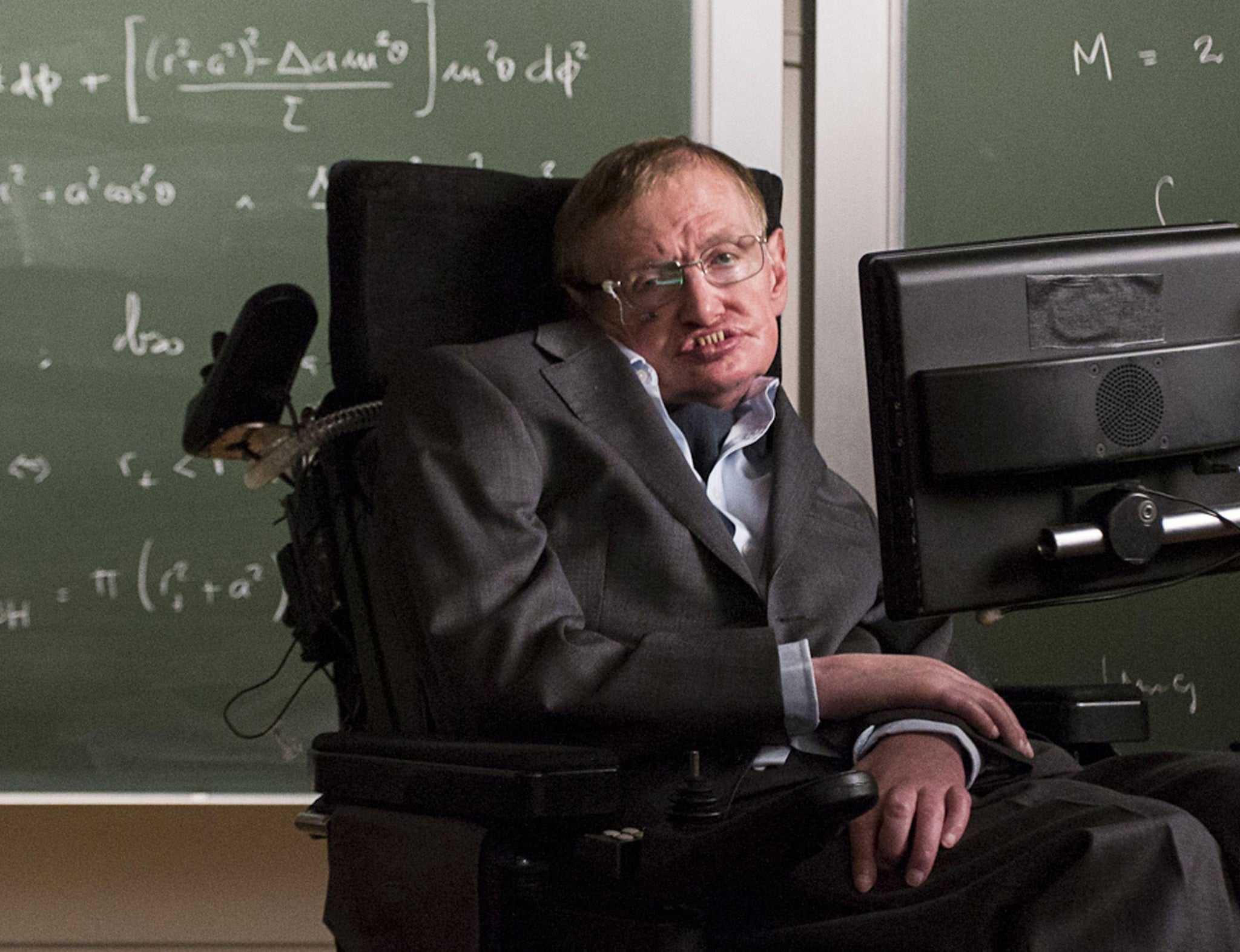Stephen Hawking makes emotional call to prevent motor neurone sufferers from dying without a voice
Campaigners are concerned that funding issues in Britain will result in many missing out on getting the specialist equipment they need

As well as slowly losing the ability to walk, pick things up and even swallow, those who suffer from the progressive nervous system condition motor neurone disease face the terrifying prospect of being left unable to communicate.
Campaigners are concerned that funding issues in Britain will result in many missing out on getting the specialist equipment they need to keep them talking long after their muscles have deteriorated.
Stephen Hawking lost his ability to speak in 1985. The physicist famously now communicates using a speech synthesiser. But other patients have had to wait months to be given a similar opportunity, and some even pass away before they are afforded the same chance.
“I am a Patron of the Motor Neurone Disease Association,” Hawking said.
“Their campaign ‘Don’t Let Me Die Without A Voice’ highlights how not being able to communicate is one of the most frightening and isolating aspects of living with motor neurone disease (MND).
“Everyone with MND should be able to access speech and language therapy and the range of communication equipment technology which is out there. No one should die without a voice.”
According to a report in the Daily Mail, two out of five MND patients will wait more than six weeks to be given the specialist equipment, which includes simple alphabet charts, as well as the more technologically advanced speech devices.
The NHS currently funds communication aids for MND sufferers, but can only cater for half those that need them, an investigation by MPs from the All Party Parliamentary Group on MND has shown.
Karen Pearce from the MND Association cited a change to the NHS specialised commissioning in 2013 that should have improved the service for the failure to provide the equipment.
The loss of the ability to speak occurs for 80-95 per cent of MND sufferers when the muscles in the lips, tongue, vocal chords and chest deteriorate.
Up to 30 per cent of MND sufferers die within a year of diagnosis.
Subscribe to Independent Premium to bookmark this article
Want to bookmark your favourite articles and stories to read or reference later? Start your Independent Premium subscription today.

Join our commenting forum
Join thought-provoking conversations, follow other Independent readers and see their replies